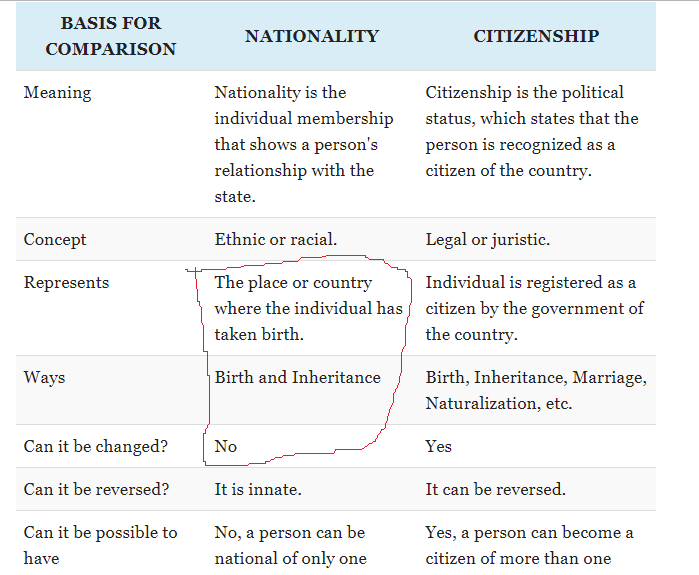I do not really understand what nationality is.
The table is from
https://keydifferences.com/difference-between-nationality-and-citizenship.html

If nationality represents a place of birth of an individual, so can I say that Vitaliy Klychko has Kazakh Nationality? He was born there and lived there for some period of time, but he does not have any connection with that country.
Info from wiki about Vitaliy Klychko (Ukrainian famous boxer)
Nationality Ukrainian
Born 19 July 1971 (age 47) Belovodskoye, Kirghiz SSR, Soviet Union (now Kyrgyzstan)
Wiki says Nationality: Ukrainian
